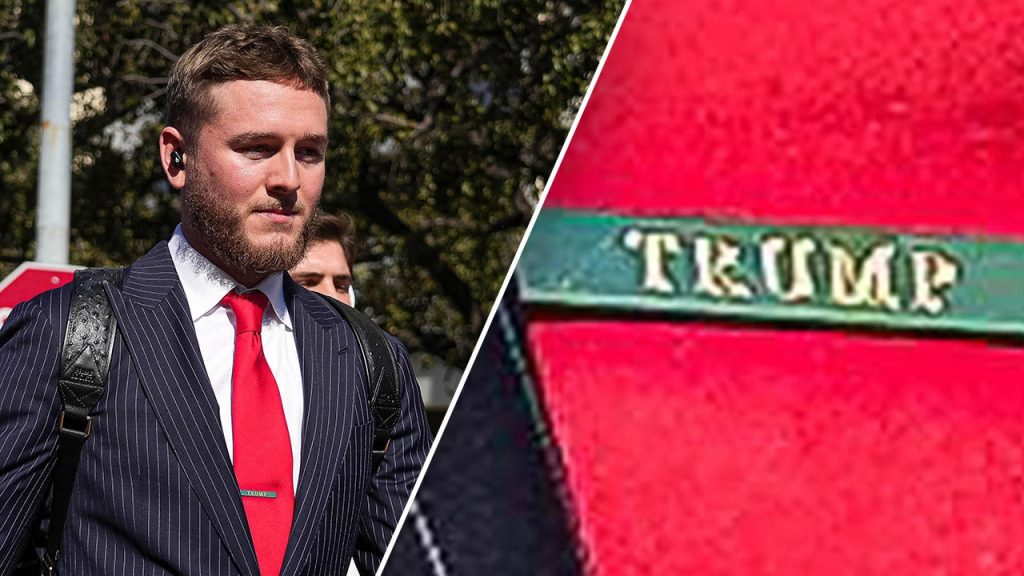Quinn Ewers, the starting quarterback for the Texas Longhorns, made a bold political statement ahead of a crucial College Football Playoff game against the Clemson Tigers. As the Longhorns arrived in their pre-game attire, Ewers’ choice of accessories stood out. Dressed in a navy blue pinstripe suit with a red tie, his gold tie clip subtly yet distinctly displayed the name “Trump,” signifying his support for the former president. This wasn’t the first instance of Ewers expressing his political leanings. His social media history reveals past endorsements, including a shared image of Trump post an assassination attempt and a celebratory graphic featuring Trump and JD Vance after the presidential election.
Ewers’ public display of support for Trump places him within a lineage of athletes who have openly aligned themselves with the former president. Following Trump’s election victories, several athletes, including prominent figures in professional sports, have shown their support in various ways. One of the most visible displays was the adoption of Trump’s signature “YMCA” dance by several athletes. This symbolic act transcended individual expression and became a shared gesture of political affiliation. Other athletes opted for more explicit endorsements. Nick Bosa, a star player for the San Francisco 49ers, famously donned a “Make America Great Again” hat after a game, a decision that resulted in an $11,000 fine.
Trump’s presence in the sporting world has been notable, with appearances at significant events like the Army-Navy game, NFL games, and UFC events. His attendance at the Army-Navy game coincided with record-breaking viewership, exceeding 9 million, leading to speculation about the correlation between his presence and the increased public interest. Trump’s engagement with sports and athletes underscores the intersection of politics and sports, a dynamic that continues to generate discussion and debate.
Ewers’ decision to wear the Trump tie clip ahead of such a high-stakes game against Clemson invites scrutiny and discussion about the role of political expression in sports. While athletes have a right to express their political views, the timing and platform of such expressions can become a focal point, especially when it coincides with major sporting events. Ewers’ action resonates within a broader context of athletes using their platform to convey political messages, a trend that has become increasingly common in recent years.
Ewers’ public endorsement of Trump aligns with a broader pattern of political polarization in the United States, where political affiliations have become increasingly intertwined with various aspects of life, including sports. This trend reflects the heightened political climate and the tendency for political divisions to seep into domains previously considered apolitical. The intersection of politics and sports often leads to both support and criticism, highlighting the complex relationship between personal beliefs and public expression, particularly for high-profile figures like athletes.
The Texas Longhorns’ performance against Clemson, while initially promising with a significant lead at halftime, ultimately resulted in a loss, shifting the focus away from Ewers’ political statement and towards the on-field action. The subsequent match-up against Arizona State in the Peach Bowl took center stage, emphasizing the transient nature of news cycles in the fast-paced world of sports. Despite the outcome of the game, Ewers’ pre-game statement remained a point of conversation, illustrating the enduring impact of political expression in the realm of sports.


